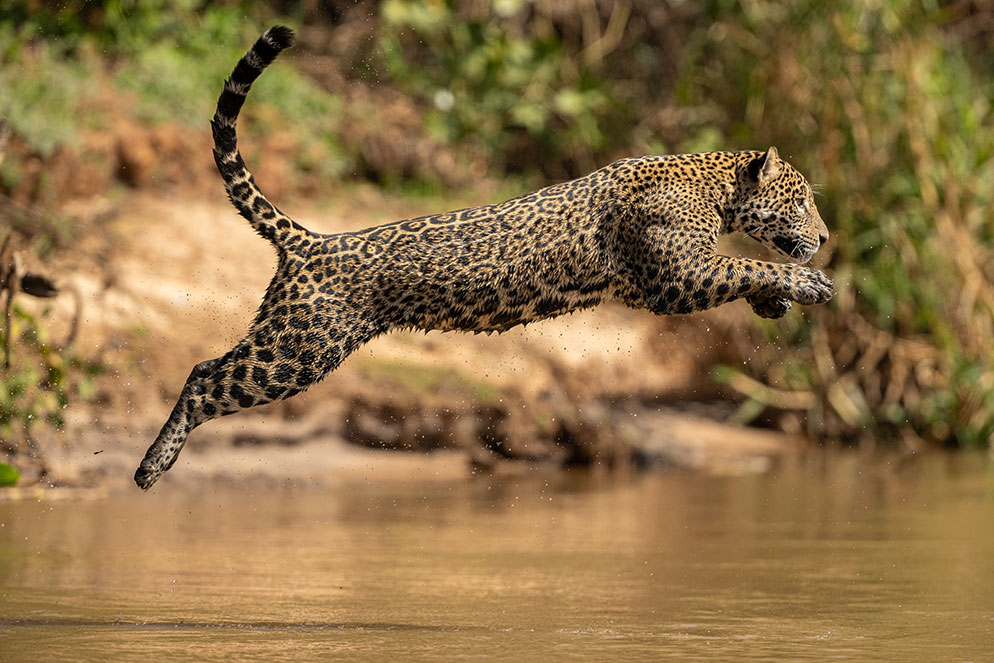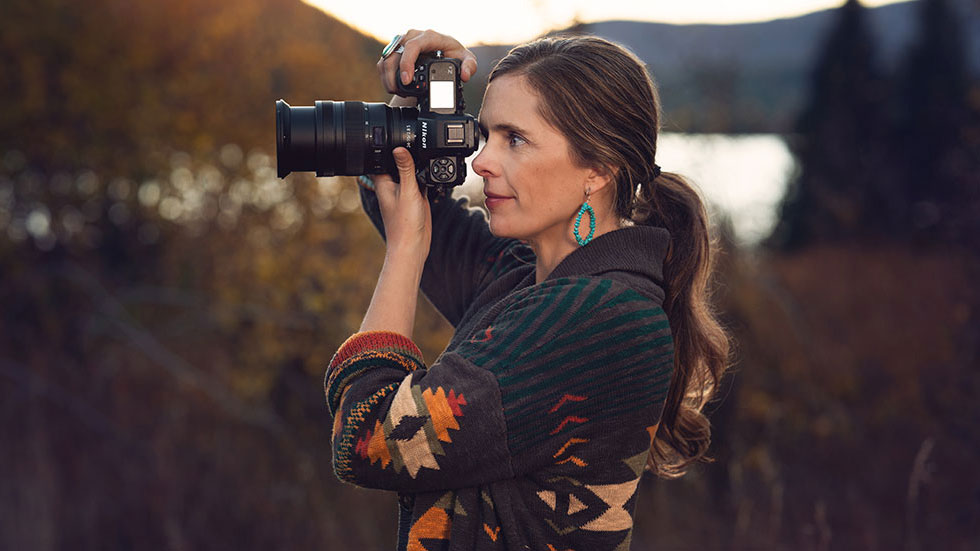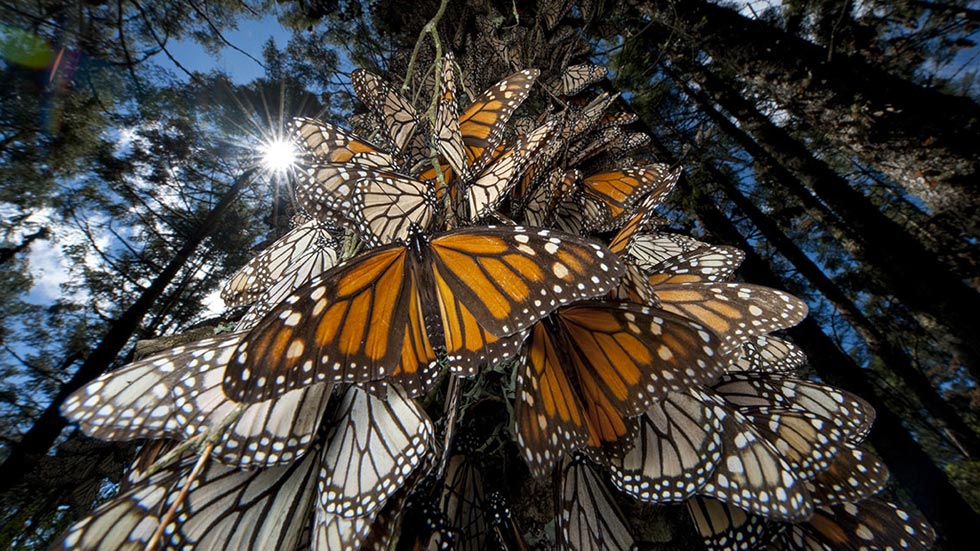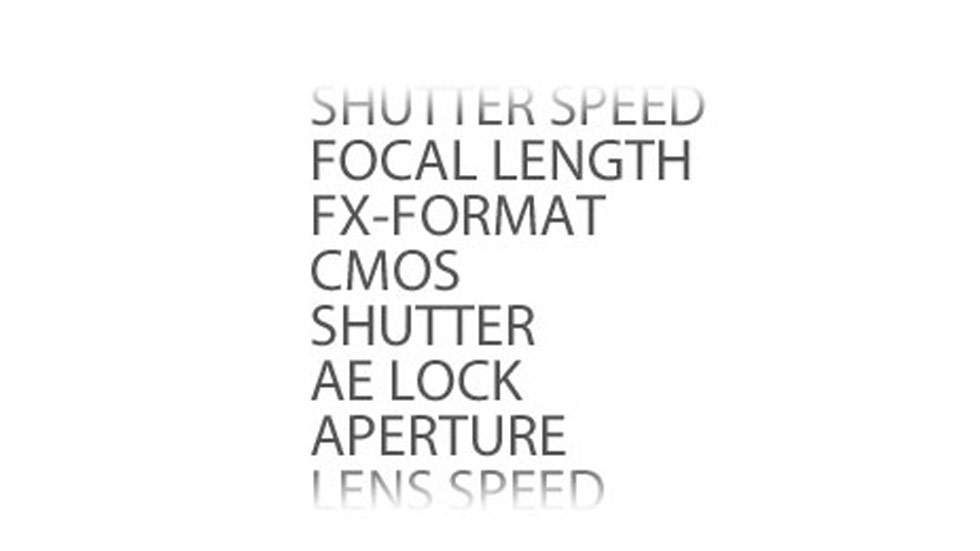Jungle Encounters: Photographing the Elusive Jaguar
Z 9, NIKKOR Z 400mm f/2.8 TC VR S, 1/6400 sec., f/4, ISO 720, manual exposure.
“Listen,” our guide, Lucas, whispers, “that’s a capybara warning call. There’s a jaguar nearby.”
I’m looking intently into the thick jungle foliage, and all I can see is…jungle. We’ve been up since dawn cruising the Tres Hermanos river searching for jaguars. Three capybaras, the largest rodent on the planet, are standing on a small sandy beach staring at a log on the river bank. They seem nervous. I glance at the log, and only see impenetrable forest. But then the ‘forest’ starts walking down the log…
My wife and I had traveled from our home in Alaska to the Pantanal region in central Brazil to lead a photo workshop, and along with a handful of photographers, we were hoping to encounter jaguars. The Pantanal is the largest freshwater wetland in the world. Each January this vast region floods with heavy rains, spurring intense growth and lush vegetation. We’ve come in July, which is the dry season, when the waters have receded to a series of rivers flowing through the Pantanal.
The wildlife along the river is impressive. We’ve seen a hundred different species of birds—a seemingly endless parade of egrets, herons, storks and kingfishers flying along the river. Giant river otters are swim near the banks, and capybara chew on lush green plants on the shore. Hundreds of Yacare’ caiman bask in the sun along the sandbars. This is a good sign. Caiman are the primary food source for the jaguar.
“Get ready! He’s hunting the capybara.” Lucas says, excitement in his voice. “I think he might jump into the river.”
Lucas isn’t the only one who’s excited. I can’t believe our luck. This is the first good look I’ve ever had of a jaguar, and this one is in full view walking down a log right at me.
When I need to get closer, I just engage the built-in 1.4x converter, which transforms the 400mm f/2.8 into a 560mm f/4 lens.
I’m facing a photography dilemma. The jaguar looks incredible perched on the log, but I can tell he’s going to jump at any second. If I decide to photograph the jaguar sitting on the log I’ll have a great shot, but I’ll miss the image if he jumps. When big cats pounce, it happens in a flash. I’ve dreamt about capturing a jaguar in midflight while hunting prey.
I’ve got my NIKKOR Z 400mm f/2.8 TC VR S lens on a Z 9. The 400mm has been perfect for this trip. We’re often shooting in low light from moving boats and being able to shoot wide open at f/2.8 has been very helpful because I can shoot at faster speeds in low light and blur the background. When I need to get closer, I just engage the built-in 1.4x converter, which transforms the 400mm f/2.8 into a 560mm f/4 lens. It’s like having two lenses in one.
Thinking about the speed of a jumping jaguar, I set my shutter speed to 1/6400 and aperture to f/4. The fast shutter speed will freeze the subject, and f/4 aperture will add a little depth of field to the broadside cat. My autofocus pattern is set to Wide-area Large and I’ve turned on animal eye-detection AF. The autofocus on the Z 9 is a game changer. I know the camera will focus right on the jaguar’s eye…if I can get it in the frame.
Composing with the jaguar on the left side of the frame, I’m ready for a lightning fast pan motion to the right when the cat jumps. I want to fill the frame with an airborne hunting jaguar and minimize cropping. Continuous shooting is set to 20 fps, fast enough to get multiple frames.
The capybara are now half way across the river, and out of range for a leaping jaguar. Just when I think the cat will disappear back into the forest, it springs into the air. I hit the shutter and pan to the right as it leaps. In a split second the jaguar lands in the water and starts swimming back to shore. I keep snapping frames of the swimming cat. My group is buzzing with joy. Even the guides are excited. This was a rare photo opportunity, a perfect broadside view of a leaping jaguar over the river.
Scanning through the images on the camera, I freeze in the middle of the jump sequence. There is the jaguar in midair, tack sharp, filling the frame, surrounded by sparkling water droplets.
The rest of our Pantanal trip is packed full photographing colorful birds, caiman, river otters and more jaguars. We see multiple cats during our trip and get some nice images. We even see the jaguars stalking caiman and more capybara.
I’m just thankful I had my Z 9 and 400mm f/2.8 ready to go. With the right equipment, and a little luck, magic can happen.






